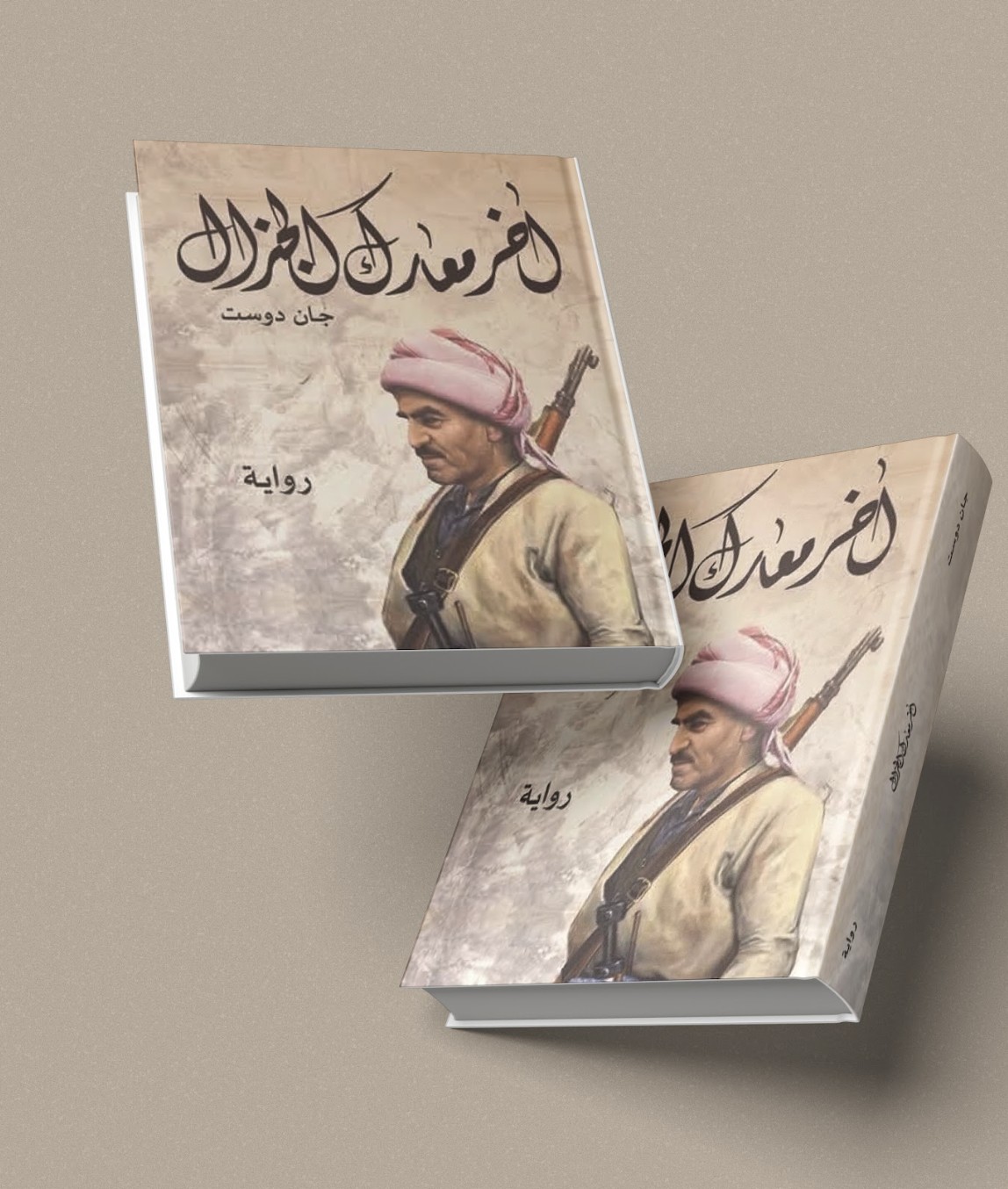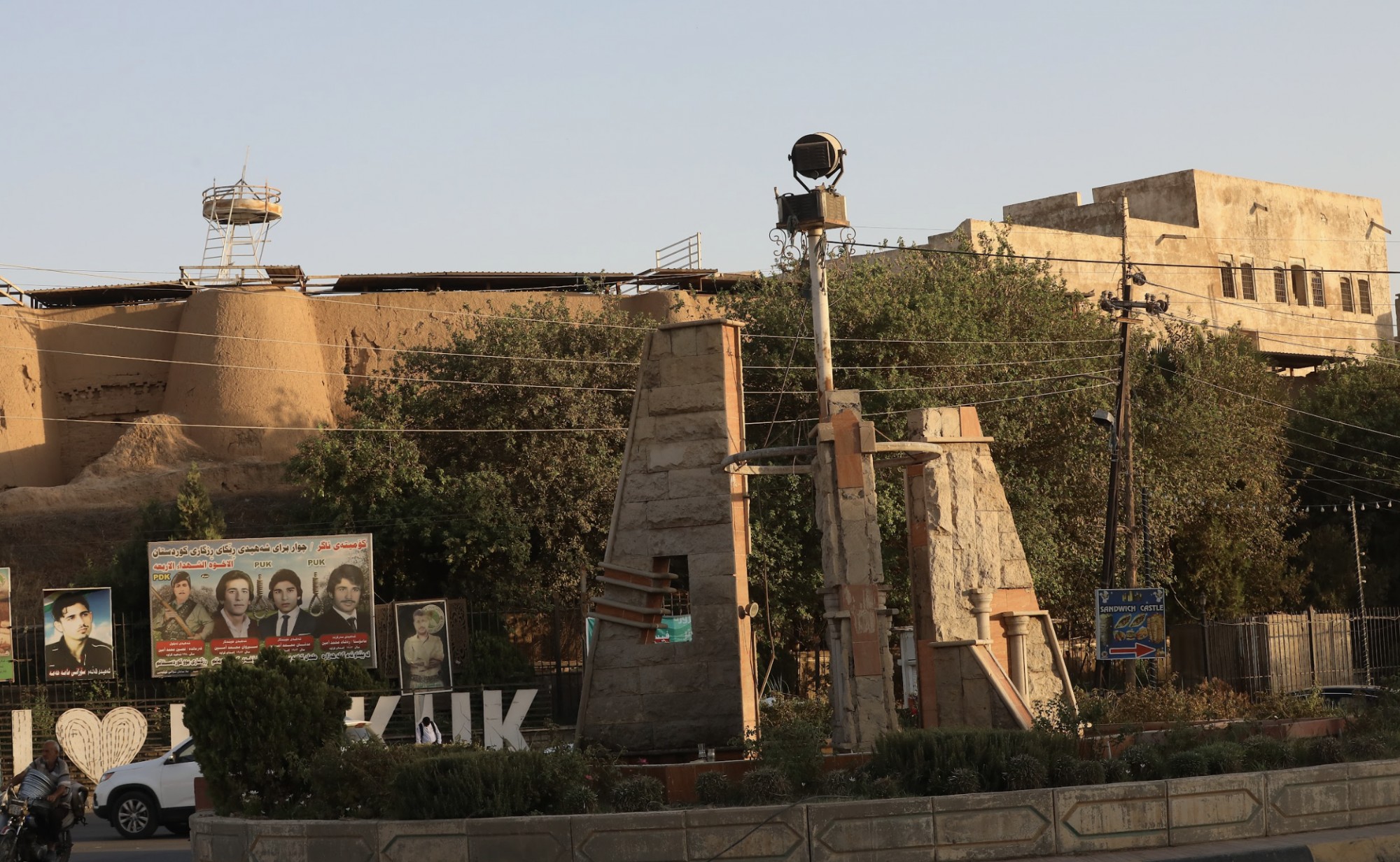The participation of all social sectors and classes in public life is vital for the establishment of a healthy and vibrant democratic system and for political systems to be representative. Young people comprise a large share of societies around the globe, and when they are excluded, disfranchised, or disengaged from political processes, they become voiceless and unable to shape the decision-making that affects their lives. A robust political culture thus hinges on the political inclusion of the youth, their relationship with politics and political processes, and the level of their political awareness.
There is growing concern in many countries, particularly in Western democracies, that youth participation in formal political processes is declining, despite the fact that young people are participating in politics in other ways, including campaigning on behalf of humanitarian or environmental issues. Engagement in formal political processes is not, after all, restricted to voting in elections; it also includes participation in political parties and in institutional political processes and policy-making bodies, such as parliaments, public administration, and government more broadly.
However, a closer look reveals that the opposite is happening in the Kurdistan Region, which has seen a steady rise in young people holding positions in public institutions, including in its legislative body, the Kurdistan Region Parliament, since the early 1990s.
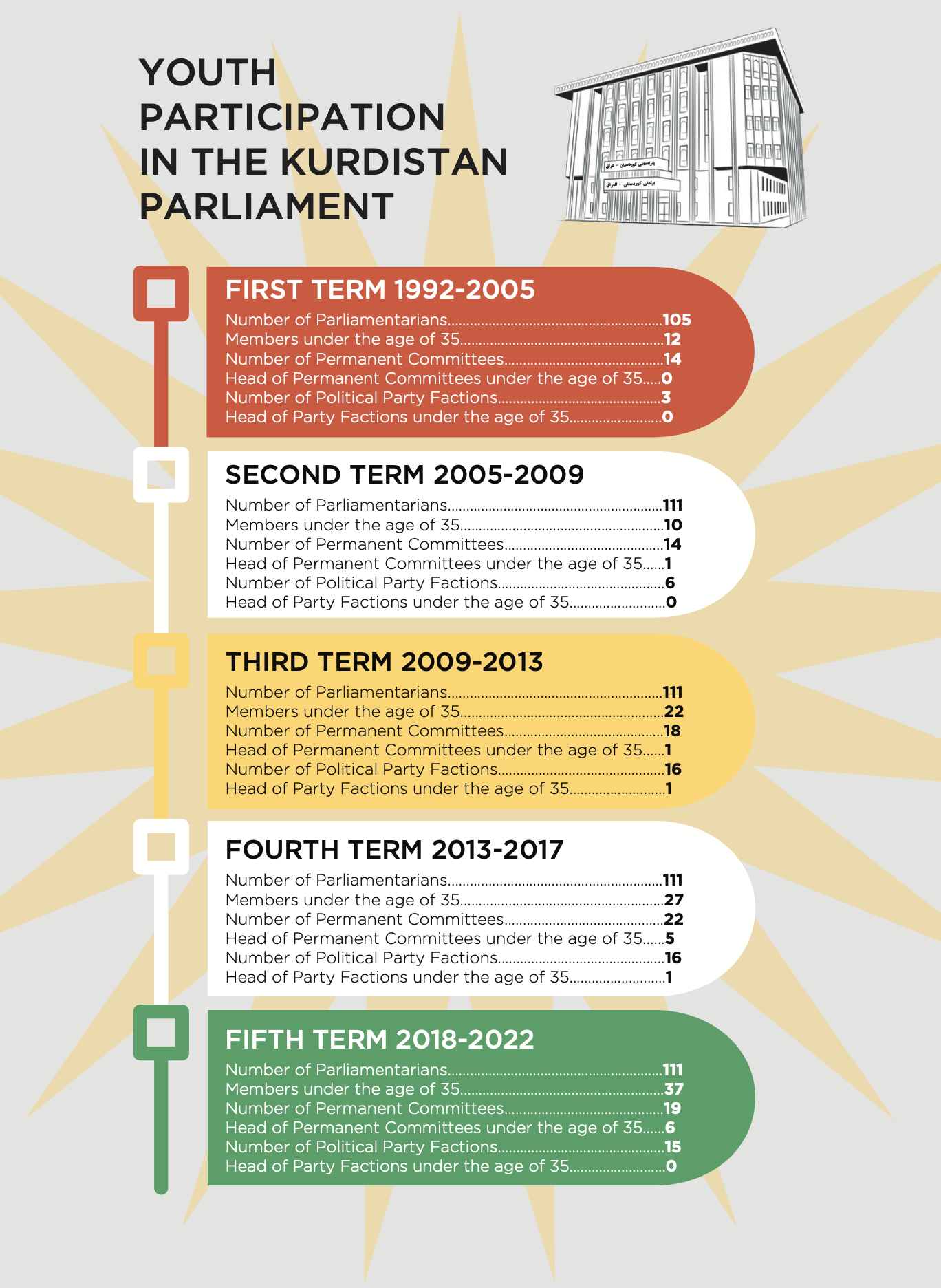
Growing participation
Since its establishment, the nascent political system in the Kurdistan Region has emphasized youth involvement in formal political processes and decision-making bodies, paving the way for their full and active participation. The reasons for this can be traced to the unique nature of the Kurdish national liberation movement. First of all, young individuals carried the burden of the movement and comprised most of the peshmerga forces. Additionally, many in the highest echelons of the current political leadership of the Kurdistan Regional Government joined politics at a young age, alternating between political activities and fighting for the cause of national liberation.
Youth involvement in the Kurdistan Region’s public institutions has grown over time. The number of young members of the Parliament (MPs) has increased gradually since the first Parliament in 1992, which had 12 young MPs. While the second Parliament in 2005 saw a slight decrease to 10 young MPs, the third Parliament in 2009 more than doubled that number to 22. The trend continued with the fourth Parliament in 2013, which saw an increase to 27. A major increase occurred with the fifth Parliament in 2018, which brought the number of young MPs to 37. This trend may reflect a greater willingness by the youth to engage actively in political processes and from the electorate to vote for them.
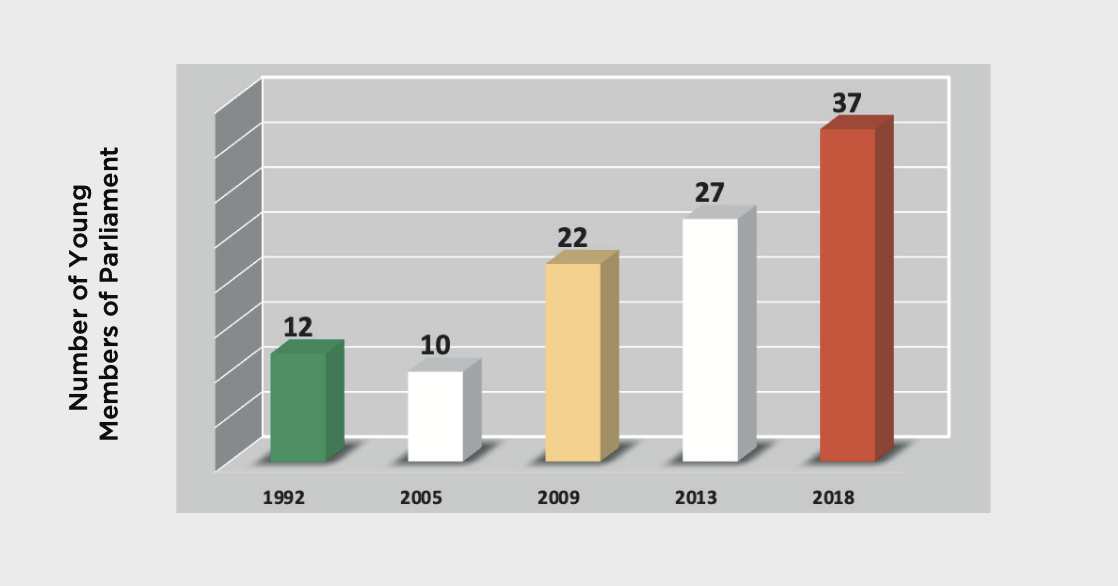
The same trend can also be seen in the allocation of decision-making posts in the Parliament, where a growing number of young MPs are taking up positions in the presidium, committees, and decision-making bodies. In the first Parliament in 1992, no permanent committee was headed by a young MP, but in the second and third Parliaments, a young MP headed one committee. This number leaped to five and six in the fourth and fifth terms, respectively. A similar trend can be seen when considering who heads the parliamentary factions. It is clear that the youth can gain the trust of society and the region’s political parties to be elected as representatives.
In a survey conducted by both the authors in Duhok Governate in April 2023, which saw the participation of 1,823 young people from the age of 18 to 23, the following question was posed: are politics and state affairs important to you? The result was as overwhelming, with 30% saying they were vital, 48% important, and 22% not important.
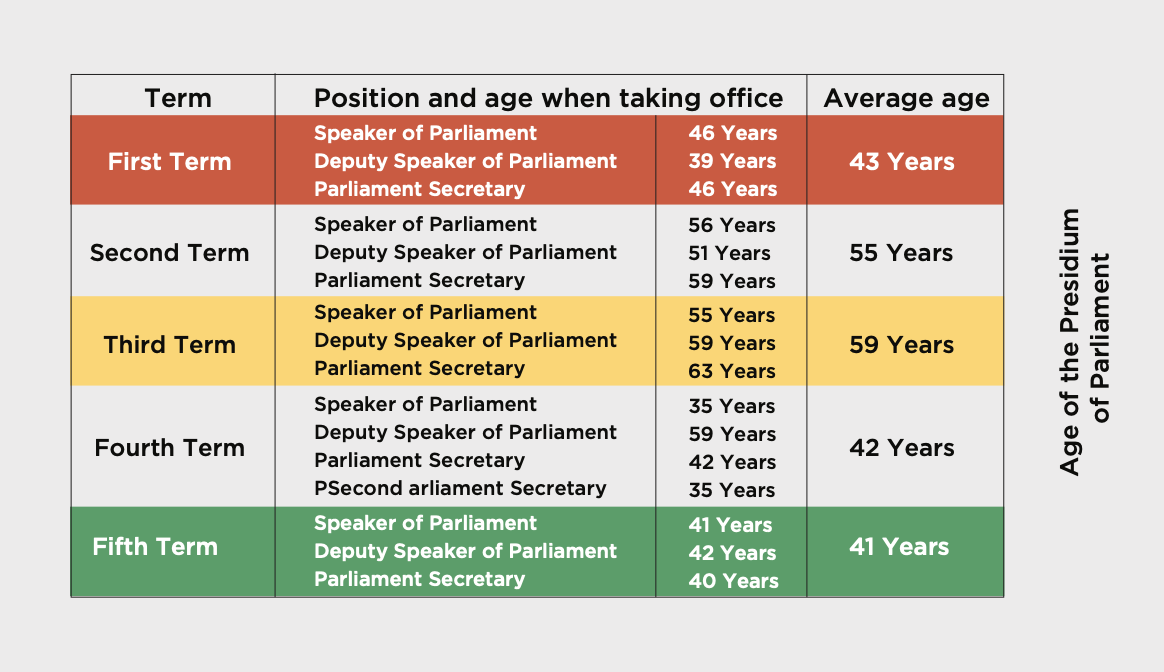
Additionally, the authors asked whether they believed that their participation in formal political processes as a young citizen was important. In similar results, 37% of respondents said it was vital, 43% important, and 20% not important.
While surveys are not perfect, the responses reveal a clear reality: 78% of young respondents consider politics and state affairs to be important matters that require their attention and 80% consider youth participation in formal political processes important.
The global context
The Kurdish experience of increasing youth attention to formal political processes and participation in legislative bodies is not representative of many other countries, in which youth have grown increasingly passive, as reflected in their decreasing involvement in formal political processes. The rate of parliamentarians under the age of 35 in the fifth term of the Kurdistan Region Parliament was 33.3% and the rate under the age of 40 was 49.5%.
Indeed, this is a remarkable achievement when compared with many other democracies. For instance, the rate of parliamentarians under the age of 40 is 27.4% in the National Assembly of France, 21.7% in the UK House of Commons, and 15.4% in the Spanish Congress of Deputies. The same can be applied to many Asian and Middle Eastern countries as well. The rate of parliamentarians under the age of 40 is 10.7% in India, 10.7% in in Turkey, and 11.8% in Algeria. This is illustrative of the fact that, although the youth comprise a large proporition of the population in many of these countries, youth participation in official decision-making bodies is low when compared to the Kurdistan Region.
Hajar Sadoon and Mohammed Tatarkhan are lecturers at College of Political Sciences at the University of Duhok in the Kurdistan Region.
